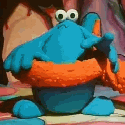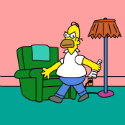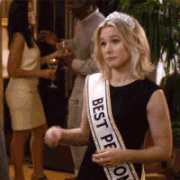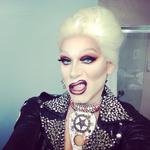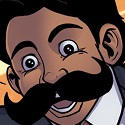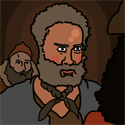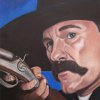|
I just finished Gravity's Rainbow after 3 odd years of on-and-off attempts at getting through it. Consequently, the next two books I'm going to read are Gravity's Rainbow and the Gravity's Rainbow Companion by Weisenberger. I'd wager I missed a good half of the references in the book and it was still fantastic.
|
|
|
|

|
| # ? Jun 1, 2024 06:24 |
|
It's been a good week for reading. Atlantis Gene- apocalypse conspiracy thriller. Doesn't hint or try to be anything more than that. Good at what it is for a quick read. Airport book. The Fault in Our Stars- YA about a girl with terminal cancer. If you like YA's and can get used to first person 16 year old teenager perspective, it does have a lot of emotional depth. I really enjoyed it. It's hard to hint at the plot without spoiling. Perks of Being a Wallflower- one of my favorite recent reads. YA with a movie that came out recently. Took me a few days to read. First person perspective from letters written to the reader from a slightly mentally ill introvert with exceptional attention to detail. It's one of those YA's that is written for the top end of the YA audience and adults. It has strong characters and develops at a good pace. Its another, like Fault, that is hard to hint at the plot without spoiling it. I enjoyed all three but will probably only reread Perks in my time.
|
|
|
|
Just finished American Psycho, again. I read it once a year or so. Some of the graphic bits still make me uncomfortable despite reading it annually for quite a while. Great book.
|
|
|
|
Crime and Punishment by Fyodor Dostoyevsky. Really good read. Can't wait to dig into more of his books!
|
|
|
|
Philthy posted:Crime and Punishment by Fyodor Dostoyevsky. Really good read. Can't wait to dig into more of his books! I just finished The Black Count by Tom Reiss. It was interesting to see how Alexandre Dumas drew so much from his father, whom this book is centered on, as well as how progressive the French Revolution was compared to the rest of the Western world at the time. The next book on my list is Atlas Shrugged.
|
|
|
|
The Death of Grass by John Christopher (aka. Samuel Youd). What a crock it was. It was OK reading I guess, but in the end, I didn't get anything worth taking from the book. All I got was suffering and pain. If you guys want to read a true ecological nightmare book, then read Day of the Triffids or just visit your local oil spill/Monsanto plantation/pig factory today instead.
|
|
|
|
ace8989 posted:If you're up for a long read from Dostoyevsky, I'd recommend The Brothers Karamazov. It took me a while to get through, but it was worth the time. I think this was the next one I was going to go with, it seems to be up there on recommendations for him. Length really doesn't bother me so long as it remains interesting. I noticed in what little Russian lit I've read that they tend to wrap political and social issues into discussions between characters(Is there a name for this?) which I really enjoy for the most part.
|
|
|
|
Philthy posted:I think this was the next one I was going to go with, it seems to be up there on recommendations for him. Length really doesn't bother me so long as it remains interesting. I noticed in what little Russian lit I've read that they tend to wrap political and social issues into discussions between characters(Is there a name for this?) which I really enjoy for the most part.
|
|
|
|
Well, I didn't "just" finish these, but I did finish both this month: The Kite Runner by Khaled Hosseini and Fooling Some of the People All of the Time by David Einhorn
|
|
|
|
Roadside Picnic by Arkady and Boris Strugatsky. Really interesting take on the whole alien visitation idea. Earth is visited by extraterrestrials for two days in six locations spread out over the world, no contact is made and the visitors ultimately don't seem to care about humanity at all and leave. What's left in the various locations are dangerous phenomena and strange artifacts that are not understood by humans. Over the years reckless individuals start to venture into these zones to try and take artifacts and sell them on the black market or to science centers . The book follows the exploits and struggles of one of these men, called a stalker, as he tries to survive living in a small town that is near one of these areas hit by one of the six visitations. I thought it was a really good read, and it hit the cynical spot in me that thinks if anything with advanced intelligence ever visited us they probably wouldn't give two shits about us, maybe not even notice us, and move on. Strange Case of Dr Jekyll and Mr Hyde by Robert Louis Stevenson. I was reading Danse Macabre by Stephen King and I realized I hadn't read this classic. Believe it or not I never bothered picking it up because of all the silly portrayals of it in the media over the years. A mistake by me obviously, as it was pretty good just as a horror/detective story but obviously there's a lot going on there with duality, good and evil, and all that as well.
|
|
|
|
For those of you who can't finish Blood Meridian (and everyone else) I recommend The Son by Philipp Meyer, which I've just now finished. It has some of the same themes and most of it is set in the same period, but it's a far easier read than Blood Meridian. Anyone who's interested in the history of Texas, captivity narratives or who wants to read about a whole bunch of people being scalped and otherwise murdered should give it a shot. The book only came out a few months ago, and I predict that a few years from now everyone will be mentioning it in the same breath as Blood Meridian. Be warned though, there's some pretty horrific sexual violence, especially in the first third of the book. paint dry fucked around with this message at 14:26 on Aug 21, 2013 |
|
|
Wampa Stompa posted:I just finished Gravity's Rainbow after 3 odd years of on-and-off attempts at getting through it. As you'll find out from the Weisenburger, you almost certainly missed way more than half. Probably more like 95%, and I don't mean to belittle you by saying that. GR is just that dense and intersectional.
|
|
|
|
|
Finished The Toaster Project. It's about a industrial design student's mission to build an electric toaster from scratch, as in getting the raw materials (iron, mica, etc) himself and then making heating elements, electrics, housing, etc. I saw an article on it and thought it might be interesting. It was a short book, finished it in two sittings. It comes across as a 1 hour Dave Gorman type talk that's been padded out into a very small book. It definitely get's less detailed as the book goes on, the latter few chapters seem very half-arsed compared to the first few. It ends with some very amateur philosophising around in circles about externalities of consumer products. It was pretty underwhelming and inconsistent in writing and aims, which is a shame because the concept is definitely one that could have been used to make a great book.
|
|
|
|
I finished Blood Meridian last night. The forward motion of the narrative really picked up in the last third or so, and everything from the moment the Judge visits the Kid in prison until the very end of the novel is just staggering. That last paragraph  quote:And they are dancing, the board floor slamming under the jackboots and the fiddlers grinning hideously over their canted pieces. Towering over them all is the judge and he is naked and dancing, his small feet lively and quick and now in doubletime and bowing to the ladies, huge and pale and hairless, like an enormous infant. He never sleeps, he says. He says he will never die. He bows to the fiddlers and sashays backwards and throws back his head and laughs deep in his throat and he is a great favorite, the judge. He wafts his hat and the lunar dome of his skull passes palely under the lamps and he swings about and takes possession of one of the fiddles and he pirouettes and makes a pass, two passes, dancing and fiddling at once. His feet are light and nimble. He never sleeps. He says that he will never die. He dances in light and shadow and he is a great favorite. He never sleeps, the judge. He is dancing, dancing. He says that he will never die. Just throw down your pens now, there's nothing more to be said.
|
|
|
|
Really I didn't vibe with the whole "the judge represents evil/the devil" until that last paragraph. Give him a fiddle and make him claim immortality McCarthy, that'll do it.
|
|
|
|
Finished Giovanni's Room by James Baldwin, like it a lot more than I thought I was going to. My first time reading Baldwin and I was not let down. He wrote the narrator so fluently, so beautifully, going through all of his shame at being in a relationship with a man but also his happiness. It was a great read (is this what you call a "coming-of-age" book?) and I'd like to read more dealing wtih the same subject.
|
|
|
|
paint dry posted:For those of you who can't finish Blood Meridian (and everyone else) I recommend The Son by Philipp Meyer, which I've just now finished. It has some of the same themes and most of it is set in the same period, but it's a far easier read than Blood Meridian. Anyone who's interested in the history of Texas, captivity narratives or who wants to read about a whole bunch of people being scalped and otherwise murdered should give it a shot. I heard a really interesting interview with the author, talking about how he'd gone to Texas to eat raw bison and stuff so he could describe it properly. Sounded really interesting. Thanks for reminding me of his name. The Woman Upstairs by Claire Messud - great first chapter and ending, far too long and uninteresting a middle. It's about a woman who falls in love with the three members of a family. Supposedly it's about how angry the main character (justifiably) is but it stops short of actually letting her act on that anger. Waiting for Sunrise by William Boyd - psychiatry, suicide, sex, and spies in Europe, before and during the Great War. Fell between the stools of an interesting character piece and an exciting plotty novel. The main character's an actor and there are some comparisons on the similarity between this and spying, but they felt pretty tired to me. Tun-huang by Yasushi Inoue - a failed candidate for the Chinese bureaucracy exams in eleventh-century Central Asia. Great writing and the characters are interesting, but there's far too much worldbuilding (page-long digressions on the politics around the characters) and a bit too much telling, not showing. Plus it's an old translation using Wade-Giles romanisation (Peking, etc) the publishers haven't updated, so the title is actually Dunhuang. Where'd You Go, Bernadette by Maria Semple - funny satire of the 1%, gets a bit sentimental and plotty towards the end. Despite the characters' shallowness there's some real feeling too. It's told as a dossier of emails, letters, doctor's bills etc. assembled by one of the characters. It has back cover quotes from Helen Fielding and Jonathan Franzen.
|
|
|
|
House Louse posted:
I may be wrong here, but I feel like you may have missed something here. She spends the entire novel talking about how others see her as the Woman Upstairs, and about how her life is so terrible, but she never does anything about it. So when she meets this interesting, exotic, successful family, of course she gets obsessed with them, and willingly lets herself believe that the family will help her change her life, despite spending the entire book talking about how unsuccessful and uninteresting she herself is. She's completely delusional. And of course she doesn't act on her anger, she has never acted on anything in her life.
|
|
|
|
Just finished Emperor of Thorns. Really good(if you like the other 2). It finished really strong. I felt it wrapped up the whole series in a nice bow. Doesn't really end the way I thought it would. I enjoyed every page of that book. It was a nice change after reading the book of the month... There is more bouncing around between past and present, and a few times I wasn't careful and realized I was reading the past. He marks the chapters, but sometimes if I put it down I forgot what chapter I was in. Not really the authors fault, but worth mentioning. The writing is on par with the others. It definitely added to the series and didn't ruin the trilogy. At the end he even justifies why he ended the series instead of dragging it out more for the sake of getting rich. Really respect him for it.
|
|
|
|
elbow posted:I may be wrong here, but I feel like you may have missed something here. She spends the entire novel talking about how others see her as the Woman Upstairs, and about how her life is so terrible, but she never does anything about it. So when she meets this interesting, exotic, successful family, of course she gets obsessed with them, and willingly lets herself believe that the family will help her change her life, despite spending the entire book talking about how unsuccessful and uninteresting she herself is. She's completely delusional. And of course she doesn't act on her anger, she has never acted on anything in her life. Sorry for being vague - I meant she's justifiably angry in the present (i.e. after the last chapter) because of Sirena selling those videos of her. I don't think it's fair to call her completely delusional, but I'd agree with the rest of your comments. elbow posted:And of course she doesn't act on her anger, she has never acted on anything in her life. No but it was super unsatisfying to just end the novel. It felt as if there was an obvious next step to the plot, almost as if it was left incomplete. Seeing Nora's failure to act would have improved the structure. Maybe I'm missing something here instead?
|
|
|
|
House Louse posted:Sorry for being vague - I meant she's justifiably angry in the present (i.e. after the last chapter) because of Sirena selling those videos of her. I don't think it's fair to call her completely delusional, but I'd agree with the rest of your comments. House Louse posted:No but it was super unsatisfying to just end the novel. It felt as if there was an obvious next step to the plot, almost as if it was left incomplete. Seeing Nora's failure to act would have improved the structure. Maybe I'm missing something here instead? In the end, I found it a very unpleasant book to read, but that's not a complaint, it's a testament to how well she constructed Nora's personality and experiences. Still, I doubt I'll ever re-read it 
|
|
|
|
This is How You Die - the second anthology in the Machine of Death series. 5 loving stars. In every way this book improves upon the first. The amount of imagination on display here is mindblowing. The authors take the death-prediction-machine idea and place it into contexts as varied as: • a military SF setting • a spy/supervillain setting (hilarious story) • an alien contact story which introduces weird quantum/parallel worlds concepts • a murder mystery in Zimbabwe • a Sherlock Holmes tale • a clockworkpunk/Victorian-ish fantasy world • a Lovecraftian horror story • a story that starts out in the present day but has a twist featuring artificial intelligence • a Choose Your Own Adventure story (hard to navigate on Kindle though) • a whimsical childrens' picture book • a gritty fantasy world with orcs and elves and goblins • a futuristic social SF setting where your death prediction can be stolen (great twist in this one) • a historical fiction story set in pre-revolution France (with a nasty final reveal) • a dystopian future dictatorship • a zombie apocalypse • a far future, post-human world where archaeologists uncover an ancient Machine of Death, but some hilarious mistranslations occur Clearly an incredible list. All those stories incorporate the Machine of Death into their worlds in clever ways, and continually surprise you. The anthology also has its share of more mundane stories, set in our modern world, but they use the Machine of Death in a variety of ways that keeps it all very fresh. There are surprises and brilliant ideas on nearly every page. In fact, while most of my favourite stories were genre-flavoured (see above list), some of my other favourites were simple character studies set in our world. Two particularly excellent stories of the "mundane" variety are one involving prison camps to hold people with certain death predictions in eastern Africa, and one about an Australian woman who knows she will one day die at the hands of her spouse, and the choices she then makes. Amazing stories. This is a stunning anthology, with such a strong and original concept, that links every story together but allows for the craziest variety. There was only one outright bad story ("Tetrapod") but the rest more than made up for it. If you've never read the original Machine of Death, my recommendation would be to skip straight to this collection. It's the better of the two. You can go back and read the first one afterwards. You will not read a science fiction anthology with such clever ideas as this for a long time.
|
|
|
|
Just finished reading The Damned Busters, the first book of the To Hell And Back trilogy by Matthew Hughes. The Damned Busters tells the tale of one Chester Arnstruther - a rather reclusive insurance actuary - as he becomes a would-be superhero after causing disarray, following an unintentional demon summoning due to a self-inflicted accident while building a poker table (as you do). Having no intention of giving his soul to a demon, Chester inadvertently causes havoc in Hell - resulting in Earth grinding to a halt (no hellish influences - so to speak - no activity fuelled by evil means). Eventually, the Devil himself has to intervene, and - as a deal must be made, lest the world never again remains the same again - Chester, after some negotiations (with the Devil, no less!) agrees on an interesting deal, one that doesn't require him giving his soul away: To be a superhero. With that said, I should mention that The Damned Busters is definitely a book of two parts. The initial half is - it must be said - rather slow and at times somewhat dull. But it's when Chester starts to experiment with his powers (and his interactions with his assigned demon sidekick) that the story really comes into it's own. As you'd might imagine with a book that involves accidentally summoning a demon by hurting yourself building a table, The Damned Busters contains comical humour that fits really well with the subject matter; the banter between Chester and his sidekick demon Xaphan (who's wisecracks are magnified by the fact that it's experiences on Earth mainly consisted of pirates, and then 1930s-era Chicago - his love for cigars and whiskey evident of that) is especially intriguing. Seeing Chester - a formerly introverted and socially awkward individual - slowly gain confidence as the superhero The Actionary is much more enjoyable, and the lead up to the poker match with the Devil to dispute a fight involving Chester and Xaphan against a villain also with a demon sidekick ends the first of the To Hell And Back on an wondrous note, egging you on to find the next book in the saga. Is it the best book I've ever read? No. Not by a long shot. Is it fun? Immensely! Don't expect to have your life changed by The Damned Busters , but do expect to have an enjoyable time invested in the life of Chester Arnstruther as he copes with being an almost-unstoppable superhero in a city that isn't ready for a superhero... Especially if the superhero isn't ready, himself...
|
|
|
|
I'm revisiting the Dune series by Frank Herbert, because I adored it as a kid (probably in large part because the symbolism/theme of any science fiction is about as subtle as a stampede and it's always nice to "get it") and found out that his son, Brian Herbert revisited the universe and added to it "based on notes found in a previously unknown safety deposit box." I just finished Dune: House Corrino by Brian Herbert and Kevin J. Anderson. My goal was to read through the entire series to fit in the prequels written by Brian, the original series written by Frank, and then finish with the final books by Brian. The series never felt very complete, but I'm now very skeptical that Brian can finish it with dignity. As an aside, I had forgotten how obviously the world of Dune adores primitivism and paints technology, commerce, and government as evil. Fremen are the epitome of the "noble savage" with everyone else enslaved by technology and financial concerns. Spice is an obvious allusion to oil. The collusion of government, aristocracy, and commercial interest to control it is clearly begging for comparison to the modern era. (Granted, the first work was written in an era where people seemed more concerned with the limitations of oil.) With that said, at least Frank Herbert could write characters. In the original books, characters have internal dialogues and hidden motivations. Characters weren't always complex (the Baron is fat and gross, so he must be evil!) but at least they were different from each other. Characters are reduced (one could argue they are further reduced) to absolute archetypes in the new work. The Atredies are good, so everything they did had to be good. They made no mistakes! The Baron's outright homosexuality being used as a way to make him disgusting was pretty brazen as well, though I don't remember if that was part of the original characterization. I did go back to double check some facts, and some of the basics don't match up, especially how Leto and Jessica begin their relationship (forced on him in the new material, old cannon says Leto sent buyers) and the pointless conflict that arises from when pregnant Jessica is called to serve the Empress. Paul is born on Kaitan, despite Dune saying he was born on his homeworld of Caladan. These are simple facts that the authors couldn't bother to correct, and as such the entire trilogy is simply too convenient and ties up too neatly. Brian Herbert has managed to take this universe and make it seem crowded and tiny, whereas the original books feel open and manage to make people seem insignificant. There is a real sense that there didn't need to be a prequel either. Nothing in it serves the narrative in the original books, which is so often the case with prequels. It was nice to take a break from reading about root growth and soil health for the summer, but with classes starting up again, I doubt I'll have time for more leisure reading. I might be okay with that.
|
|
|
|
I just finished Lost Everything, by Bryan Francis Slattery. https://www.goodreads.com/book/show/12139883-lost-everything At it's core, it's a story of a man and his friend travelling up the Susquehanna River to find his young son, set in the not-too-distant future after the destruction of the United States by weather events and a pointless civil war. But more than that, it's about the lives of the people they meet and how they spend their final days before 'The Big One' ends it all. The best I can describe it is 'smoking a fat joint right before bed and listening to a vinyl recording of The Road as you fall asleep'. Or possibly, Apocalypse Now reimagined by Terrence Malick. His writing is restrained, dreamlike and floats around time and space pretty freely. I really enjoyed it.
|
|
|
|
Finished Robert Creamer's biography of Babe Ruth - Babe: The Legend Comes to Life - today. It's a good, if dated, look at Ruth (he really relies on boxcar stats like RBI and Total bases) and is pretty unflinching when looking at his more unsavoury side: he constantly fought with management, openly cheated on his first wife (who had several nervous breakdowns from the stress and died young) and drank like a fish. I think someday soon I'll read Leigh Montville's more recent biography of Ruth and see what's different.
|
|
|
|
I just finished The Mistborn Trilogy by Brandon Sanderson. The first book started off pretty rough for me. I was annoyed at Vin's third person voice and it seemed like the writing itself wasn't so great. I was bracing myself for another terrible Sabriel/Abhorsen experience (where the plot was cool but everything else sucked)... but somewhere along the way either Sanderson's writing got better or I started to really love the characters or the story just got too good to stop. I was incredibly impressed by how well the books were planned out. The world was complete, there weren't a lot of logic gaps (magic rules were consistent, no big plot holes), and the ending was satisfying.
|
|
|
|
the amber trap posted:I'm revisiting the Dune series by Frank Herbert, because I adored it as a kid (probably in large part because the symbolism/theme of any science fiction is about as subtle as a stampede and it's always nice to "get it") and found out that his son, Brian Herbert revisited the universe and added to it "based on notes found in a previously unknown safety deposit box." I just finished Dune: House Corrino by Brian Herbert and Kevin J. Anderson. My goal was to read through the entire series to fit in the prequels written by Brian, the original series written by Frank, and then finish with the final books by Brian. The series never felt very complete, but I'm now very skeptical that Brian can finish it with dignity. The stuff BH/KJA write is amazing because its clear that they don't really care or get Frank Herbert's work. BH/KJA take neat things like a religious uprising against thinking-machines and turn it into terrible stories about evil, capewearing, robots. I wouldn't let what they write taint your childhood memories of the originals. Also Brian Herbert is clearly lying about the notes of his fathers he "found."
|
|
|
|
Was on a huge Margaret Atwood kick lately, read Oryx and Crake, The Year of the Flood, The Handmaid's Tale, and The Blind Assassin over the last few weeks (woo summer vacation). The Handmaid's Tale was by far my favorite, incredibly bleak, but so well-written. At first I had a hard time accepting the setting and how quickly it had come about, but as the book went on it either became more convincing, or it became more of a parable than SF (I know Atwood is famously cantankerous about being lumped in with sci-fi) and just didn't matter as much. Oryx and Crake I liked, but perhaps not as much as general opinion, The Year of the Flood I really struggled with, because the God's Gardener's stuff was just so tedious and  . I guessed the twist of The Blind Assasin kinda early on but it didn't really ruin the book for me (although as family epics go, I'd say Middlesex has kinda set the bar pretty high for me), but I'd still say The Handmaid's Tale is the clear-cut favorite of the four. . I guessed the twist of The Blind Assasin kinda early on but it didn't really ruin the book for me (although as family epics go, I'd say Middlesex has kinda set the bar pretty high for me), but I'd still say The Handmaid's Tale is the clear-cut favorite of the four. Kinda wanted some lighter fare after all that, so I finally got around to reading The Lies of Locke Lamora, having heard lots of people mention it. It was... OK. Lots of the dialog especially grated on me, and not sure how I felt about the just-in-time flashbacks to get the characters out of certain situations. I did cackle at the "Nice bird, rear end in a top hat." opener for the chapter following the infodump about the Bondmages, and some of the social engineering in particular, the bit at the Meraggio's bank came across as pretty fresh for the genre. The con with the Don, especially the false-flag part with the Midnighters was pretty cool/interesting as well. Overall I liked the story (read the book in a single day) but I felt like the execution could have been done a lot better. I ain't mad and will probably check out the sequel... although I know goons talk a fair amount of poo poo about it being quite different from the first, but I don't always feel like that's a bad thing (for example, I'm in the minority opinion that the Endymion books are for the most part a worthy conclusion to Hyperion).
|
|
|
|
Pompous Rhombus posted:Was on a huge Margaret Atwood kick lately, read Oryx and Crake, The Year of the Flood You know the third book in that trilogy (MaddAddam) will be released on the 3rd of September. I haven't yet gotten myself to read The Year of the Flood because I was a bit disappointed by Oryx and Crake, but I'm also curious to see how she develops the rest of that world.
|
|
|
|
Drunkboxer posted:The stuff BH/KJA write is amazing because its clear that they don't really care or get Frank Herbert's work. BH/KJA take neat things like a religious uprising against thinking-machines and turn it into terrible stories about evil, capewearing, robots. I wouldn't let what they write taint your childhood memories of the originals. After reading both prequel trilogies, I can say you're absolutely right. It is clear this is just a cash grab based on his connection to his father and that there was no secret safety deposit box. The Butlerian Jihad nonsense doesn't even read or feel like the proper Dune books, so I can write them off easily. I let the houses trilogy slide because it was his first attempt, though that was still disappointing. I still have a morbid desire to see how he mangles the conclusion, so I'm stuck watching this slow motion train wreck unfold.
|
|
|
|
I hadn't been reading as much as I'd like lately, so I pushed myself to finish a bunch of stuff for my library's summer reading program. This is what I finished: The Hobbit was a lot of fun, and now I'm looking forward to seeing how they adapt the rest of the book for the remaining two movies. I hope the Mirkwood spiders scene is done well. Killshot by Elmore Leonard, who unfortunately passed away recently. I think it's my favorite of his that I've read- all of the characters were interesting and the collision between an average married couple and a pair of hardened criminals was a lot of fun to watch unfold. The Catcher in the Rye- I can see where people are coming from when they say Holden Caulfield is annoying, but I liked reading it as a look inside a character's head, not necessarily one we're supposed to empathize with. I feel like it's lost some of its punch as a statement of rebellion, but it was still a pretty good read. A Short History of Nuclear Folly by Rudolph Herzog was really interesting/terrifying- it's a look at how clueless both the US and Soviets were during the Cold War, from radiation to missing nukes and on and on. I highly recommend it- maybe a bit dry at the end, but as someone with an interest in the Cold War it was pretty fascinating. Death of a Salesman- Aaaaaaagghhhh how had I not read this beforehand. Seriously one of the best works of fiction I've ever experienced, no hyperbole there. On Writing by Stephen King- this was actually the first book I've ever read of King's, and now I want to read more. As a writer this was a helpful look at his take on the process, the art of fiction, and how writing shapes and is shaped by his life.
|
|
|
|
Pompous Rhombus posted:Was on a huge Margaret Atwood kick lately, read Oryx and Crake, The Year of the Flood, The Handmaid's Tale, and The Blind Assassin over the last few weeks (woo summer vacation). If you haven't already, give Alias Grace a try -- I'm a huge Atwood fan and IMO Alias Grace is the best thing she's ever done. In fact, if anyone is reading the thread and thinking they'd like to start reading Margaret Atwood but don't know which book to pick up first, I would recommend this one -- it's the most accessible of her novels, her talents are on full display and her weaknesses are quieted, it's a self-contained well-researched historical novel based on a true story (and Atwood gets into truth vs. retelling of truth vs. fiction), and you get to watch her alternate very deftly between two different prose voices. I think it's her masterpiece.
|
|
|
|
Just finished Paul Theroux's Last Train to Zona Verde, some of the stuff that he writes about Angola made me feel embarrassed for being Portuguese.
|
|
|
|
Finished 1Q84 about a week or so ago, and while I was always engaged and interested; I didn't think the payoff justified the book's massive length, and Murakami's characters seem to be better when he's writing in first person. Also read Breakfast of Champions, which was really funny and possibly one of the best books I've ever read.
|
|
|
|
Just finished Blood Meridian. I found this book extremely difficult to get into at first, which is why I only just finished it despite buying it months ago. Well worth putting the effort in though, first book in a long time to give me the chills.
|
|
|
|
Pacazo by Roy Kesey. See, this is why I love the Kindle deals of the day or whatever, just read the blurb and bought the book, and thought it was awesome. If you're not put off by sometimes confusing stream of consciousness writing (and honestly its not that confusing) and have any interest in Peru or stories about people losing their poo poo after a tragedy I think you'll like this book. basically just about a dude who is way into Peruvian history and ends up teaching English there, falling in love with a Peruvian girl, and experiencing loss while in a foreign country. Really neat, and not something I would have picked up in physical form.
SilkyP fucked around with this message at 05:08 on Sep 1, 2013 |
|
|
|
The Dogs of Riga by Henning Mankell. This was Book 2 in the Wallandar series of mystery novels about a Swedish detective. Wallander has the expected characteristics of a literary detective--anti-social, drinks too much, marriage deep sixed years ago, borderline depressive--but I still enjoyed reading about him. The story here veers into the B movie towards the end, but I was curious as to how Mankell would wrap it up. Mankell's depiction of Riga is so unrelentingly grim it's a wonder people had the strength to get out of bed in the morning. Moving onto Night Film now.
|
|
|
|
The Immortal Life of Henrietta Lacks, Rebecca Skloot (3/5): This is about the woman whose cervical cancer cells produced the "immortal" cell line known as HeLa. I picked it up after hearing it praised for its accessible science writing, but was disappointed at how little science it contained. While it does discuss the cell line and some of the research it has made possible, the book is more focused on the story of the woman behind the cells. In retrospect, that should have been obvious from the title of the book. That said, it was interesting, especially as it dealt with issues of bioethics. The Devil in the White City, Erik Larson (4/5): This interweaves the stories of Daniel Burnham, the architect of the World's Columbian Exposition in 1893 (the White City), and the serial killer Dr. H. H. Holmes (the Devil), who capitalized on the increased traffic the expo brought to Chicago. Both were interesting enough to make standalone books in their own right; the combination makes for a really great read. Goliath, Scott Westerfield (4/5): This is the third book in the Leviathan trilogy, the alternate history of WWI as fought between Clankers and Darwinists. This was a really solid trilogy and this final book might be the strongest of the three. Wyatt fucked around with this message at 17:19 on Nov 17, 2014 |
|
|
|

|
| # ? Jun 1, 2024 06:24 |
|
The Lord of Opium by Nancy Farmer. It's the sequel to one of my all-time favourite books, The House of the Scorpion, and its publication was very much anticipated. Like The House of the Scorpion, it takes place about 100 years into the future, in a world where the US/Mexico border has been taken over by drug dealers and stars Matt, the young clone of the oldest and most powerful drug lord of them all. I found it to be a terrific read and a worthy sequel. The novel greatly expands on the world presented in the original novel and presents a host of new and compelling characters, although some of the returning ones don't get as much pagetime as I'd have liked. The plot rushes along with a sense of urgency and high stakes, and I was sucked in almost immediately. There are a few details that don't quite gel with the original novel, but I think that's to be expected since The House of the Scorpion was published eleven years before this one. Overall, even with the new elements the sequel introduced, the two stories fit together well. For anyone interested in Young Adult science fiction, I'd highly recommend both books.
|
|
|





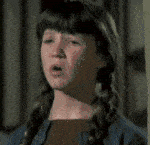


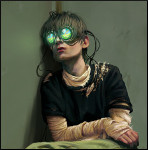


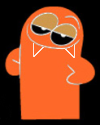
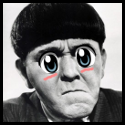

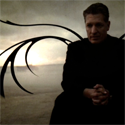

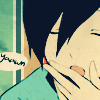



 BAD POSTER ALERT!
BAD POSTER ALERT!
